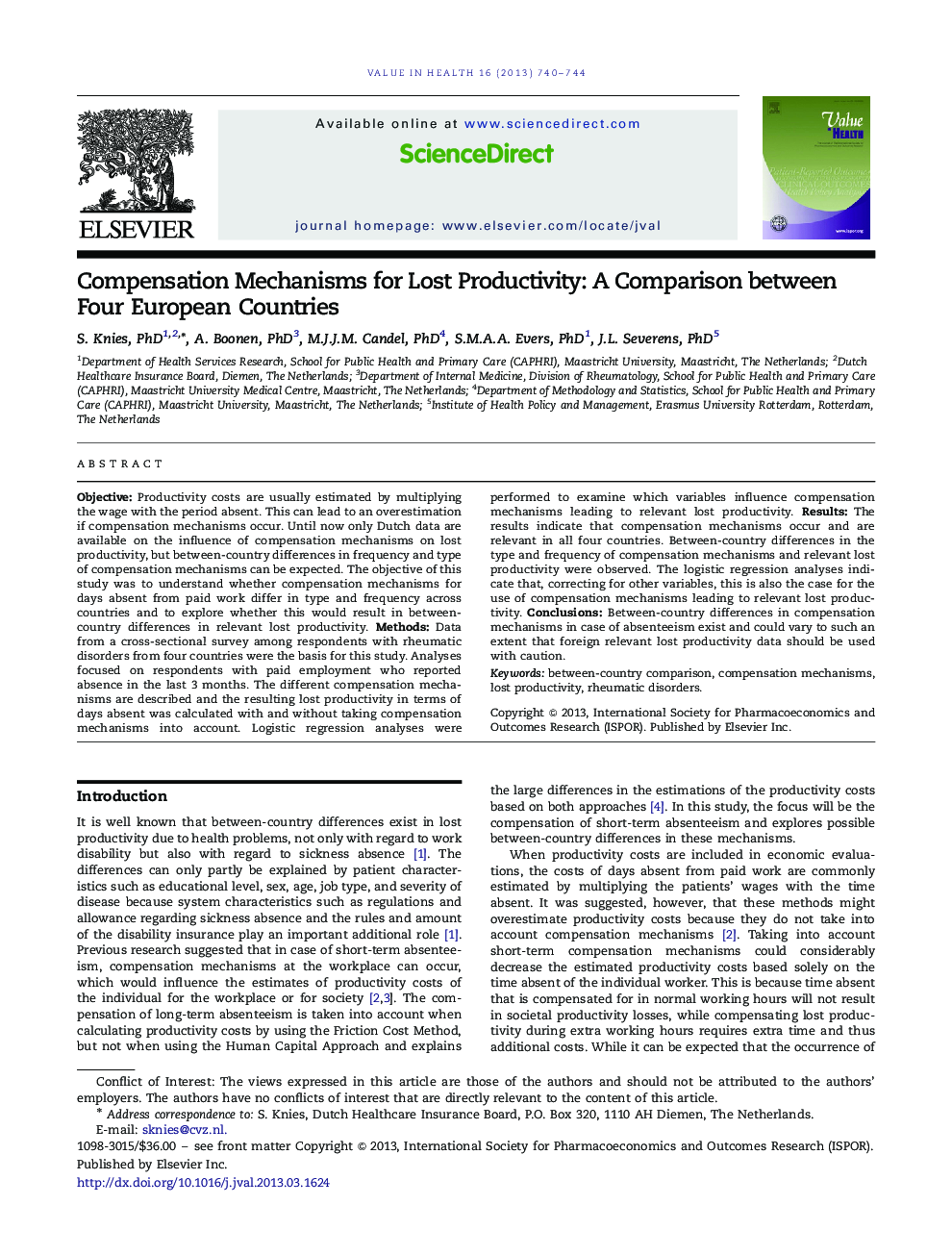| Article ID | Journal | Published Year | Pages | File Type |
|---|---|---|---|---|
| 987516 | Value in Health | 2013 | 5 Pages |
ObjectiveProductivity costs are usually estimated by multiplying the wage with the period absent. This can lead to an overestimation if compensation mechanisms occur. Until now only Dutch data are available on the influence of compensation mechanisms on lost productivity, but between-country differences in frequency and type of compensation mechanisms can be expected. The objective of this study was to understand whether compensation mechanisms for days absent from paid work differ in type and frequency across countries and to explore whether this would result in between-country differences in relevant lost productivity.MethodsData from a cross-sectional survey among respondents with rheumatic disorders from four countries were the basis for this study. Analyses focused on respondents with paid employment who reported absence in the last 3 months. The different compensation mechanisms are described and the resulting lost productivity in terms of days absent was calculated with and without taking compensation mechanisms into account. Logistic regression analyses were performed to examine which variables influence compensation mechanisms leading to relevant lost productivity.ResultsThe results indicate that compensation mechanisms occur and are relevant in all four countries. Between-country differences in the type and frequency of compensation mechanisms and relevant lost productivity were observed. The logistic regression analyses indicate that, correcting for other variables, this is also the case for the use of compensation mechanisms leading to relevant lost productivity.ConclusionsBetween-country differences in compensation mechanisms in case of absenteeism exist and could vary to such an extent that foreign relevant lost productivity data should be used with caution.
